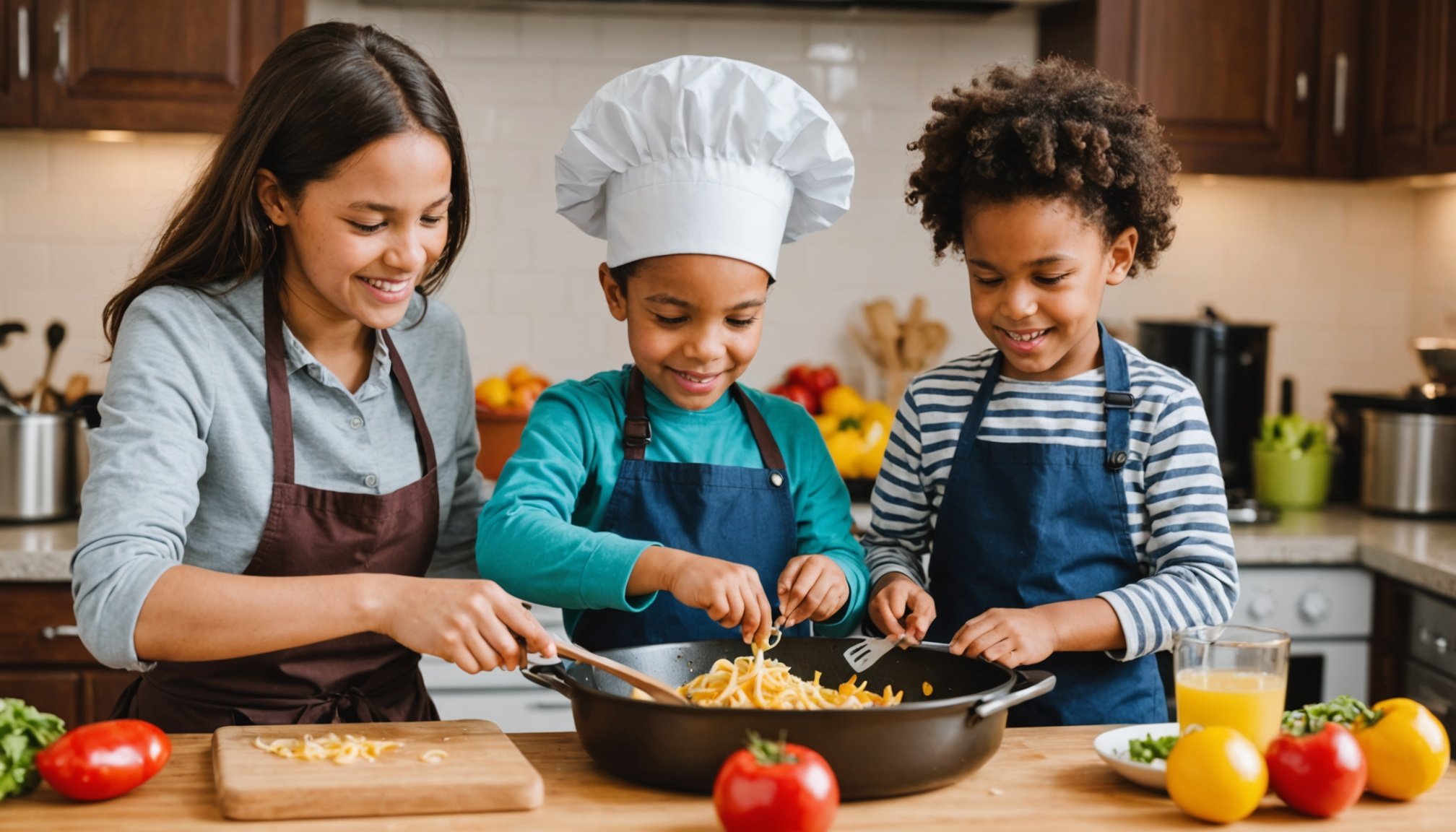Teaching your children to cook is not just about preparing meals; it’s a delightful journey that can enhance their skills and foster a love for food. In today’s fast-paced world, many families find it challenging to engage in quality time together, but cooking provides a perfect opportunity to bond, learn, and have fun. This article explores how you can make cooking a joyful and educational experience for your children, regardless of their age or prior kitchen experience.
Creating a Fun Cooking Environment
When you embark on the journey of teaching your kids how to cook, a fun and welcoming kitchen environment is essential. Choose a specific area where your children can freely engage without feeling overwhelmed. Equip the space with colorful tools and fun gadgets that spark curiosity. For example, consider using kid-friendly utensils that are safe yet effective. These tools can include small measuring cups, vibrant mixing bowls, and playful aprons that allow kids to feel like true chefs.
Also to read : How can I ensure my kitchen layout promotes efficient workflow during cooking?
Incorporating music into cooking can also enhance the atmosphere. Play some upbeat songs while cooking to keep the energy lively. This not only makes the task enjoyable but also encourages kids to move and groove while they learn to cook. Don’t forget to involve fun themes related to holidays or seasons. Preparing Halloween-themed treats or festive cookies for Christmas can add excitement and anticipation.
Moreover, allow your children to decorate the kitchen space with their drawings or cooking achievements. A bulletin board filled with their culinary creations can foster pride and motivation. When cooking feels like a fun activity rather than a chore, your kids will be more inclined to participate and learn.
Also to see : How can I upcycle old kitchen items into trendy home décor?
Ultimately, creating an inviting atmosphere in the kitchen sets the stage for a positive cooking experience. Not only will your children develop important cooking skills, but they will also associate those skills with joyful memories and family bonding.
Choosing the Right Recipes
Selecting suitable recipes is crucial when teaching your kids to cook. Start with simple recipes that require minimal ingredients and steps. This will help build confidence as they see results quickly. Baking is an excellent choice for beginners, as it often involves precise measurements and can be very rewarding. Consider recipes like cookies, muffins, or simple cakes that allow children to actively participate in mixing, pouring, and decorating.
However, it’s important to balance simplicity with engagement. Choose recipes that allow for creativity. For instance, homemade pizzas can be a fantastic way to involve kids in choosing their favorite toppings and arranging them. This adds an element of personalization and ensures they are excited about what they are preparing.
Engage your children in the cooking process by allowing them to read the recipes aloud. This not only enhances their reading skills but also keeps them involved in the activity. Encourage them to ask questions about the ingredients and the cooking process. This curiosity is essential for developing a deeper understanding of food and cooking techniques.
Additionally, you might introduce international recipes to broaden their culinary horizons. Cooking dishes from various cultures can be a fun way to teach your kids about different traditions and cuisines while honing their cooking skills. You could try making sushi, tacos, or stir-fry, allowing your kids to explore flavors and cooking styles from around the world.
Encouraging Independence in the Kitchen
As your kids become more comfortable in the kitchen, it’s important to encourage independence. Start by allowing them to handle certain tasks alone. For instance, they can wash ingredients, measure dry or wet ingredients, or stir mixtures. As they gain confidence, gradually increase their responsibilities. Teaching them how to use a knife safely or operate simple kitchen appliances can be part of this progression.
Safety is paramount, so always supervise children when they’re using sharp tools or cooking equipment. Explain safety protocols comprehensively and ensure they understand the importance of being cautious in the kitchen. This not only helps prevent accidents but also teaches them responsibility.
Encourage them to plan meals independently. Ask them to choose a recipe they would like to prepare for the family. This empowers them to take ownership and makes the cooking experience even more rewarding. You could guide them by providing a few recipes to choose from or help them create a shopping list of ingredients.
As your kids gain more independence, celebrate their achievements. Acknowledge when they successfully prepare a meal on their own or when they experiment with new flavors. This recognition builds confidence and encourages them to continue exploring their cooking skills.
Making Cooking a Family Activity
Integrating cooking into family time can significantly enhance the overall experience. Designate specific days or evenings as family cooking nights. This routine not only allows your kids to engage in cooking but also strengthens family bonds. Everyone can contribute to meal preparation, creating a collaborative environment where teamwork thrives.
Consider dividing tasks based on age and skill level. Younger children can focus on washing vegetables or measuring ingredients, while older kids can take on more complex tasks such as chopping or stovetop cooking. This division of labor makes each family member feel valued and involved.
To keep things interesting, rotate cooking responsibilities among family members. This gives everyone a chance to showcase their favorite recipes and share personal cooking tips. It also allows children to learn from their parents and siblings, fostering a collaborative learning environment.
Documenting your family cooking adventures can further enhance the experience. Take photos of the dishes you create together, and discuss what each person enjoyed about the process. Creating a family cookbook with these recipes not only serves as a keepsake but encourages kids to continue cooking as they grow older. By making cooking a family activity, you create a nurturing atmosphere where your children can thrive and develop their culinary skills.
Teaching your kids basic cooking skills doesn’t have to be a daunting task. By creating a fun cooking environment, choosing the right recipes, encouraging independence, and making it a family affair, you can instill a lifelong love of cooking in your children. The kitchen can become a place of exploration, creativity, and togetherness where essential life skills are learned. So gather your ingredients, don your aprons, and embark on this exciting culinary journey together!











